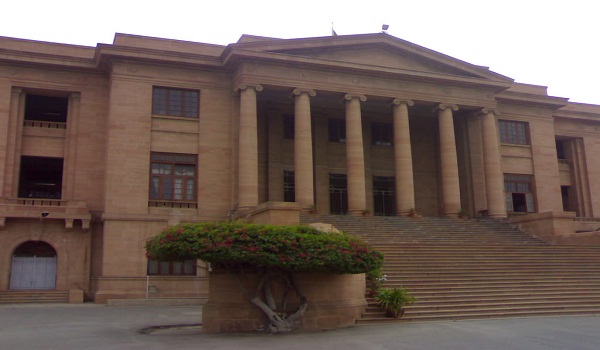Islamabad: The National Assembly Standing Committee on Finance and Revenue has expressed its support for the Federal Board of Revenue’s (FBR) efforts to curb black money in the real estate sector. The committee has also formed a sub-committee to address stakeholders’ concerns and review the proposed Tax Laws (Amendment) Bill 2024 in consultation with relevant parties.
The meeting, chaired by MNA Naveed Qamar, examined the provisions of the amendment bill and appointed the sub-committee to resolve outstanding issues between the FBR and stakeholders. The sub-committee, as per its terms of reference, will work with the Association of Builders and Developers (ABAD) to determine the quantum and timeline for eligibility under the new tax regime. The panel is expected to submit its findings within 10 days, with its first meeting scheduled for Thursday (January 23).
Read: FBR to reevaluate high taxes on real estate transactions
State Minister for Finance and Revenue, Ali Pervaiz Malik, emphasized the significance of the bill, stating that it aims to enhance tax compliance and bring the undocumented sector into the tax net. “The previous government ignored the issue of non-filers for 75 years. Our government is determined to address this challenge,” he asserted.
Under the proposed law, non-filers will face restrictions on purchasing properties and vehicles, as well as on investments in businesses or the stock market. However, exemptions will be provided for low-income individuals. FBR Chairman Rashid Mahmood Langrial informed the committee that these measures target high-income tax evaders and businesses.
He added that non-filers will still be permitted to purchase property valued up to Rs10 million. The chairman highlighted the scale of underreporting in the economy, revealing that only 42,000 individuals have filed sales tax returns, while many businesses remain outside the sales tax regime.
The new law also empowers FBR officers to block transactions suspected of involving black money or tax evasion. To strengthen enforcement, the FBR plans to recruit 1,600 auditors who will work to track non-filers and enforce tax laws.
Read: Overseas Pakistanis get real estate tax relief under new FBR initiative
The committee members raised concerns about the proposed amendments, citing issues such as corruption and capacity challenges within the FBR. They also discussed the potential economic implications of the new measures.
Chairman Naveed Qamar stressed the importance of increasing tax collection and expanding the registration of taxpayers. He directed the FBR to address the controversies surrounding the bill and provide solutions to mitigate its economic impacts. He further urged the finance division to engage all stakeholders and resolve any anomalies in the proposed legislation.
The bill represents a significant step in the government’s broader effort to combat tax evasion and formalize Pakistan’s economy, which, according to estimates, operates with nearly half of its activity in the undocumented sector.








